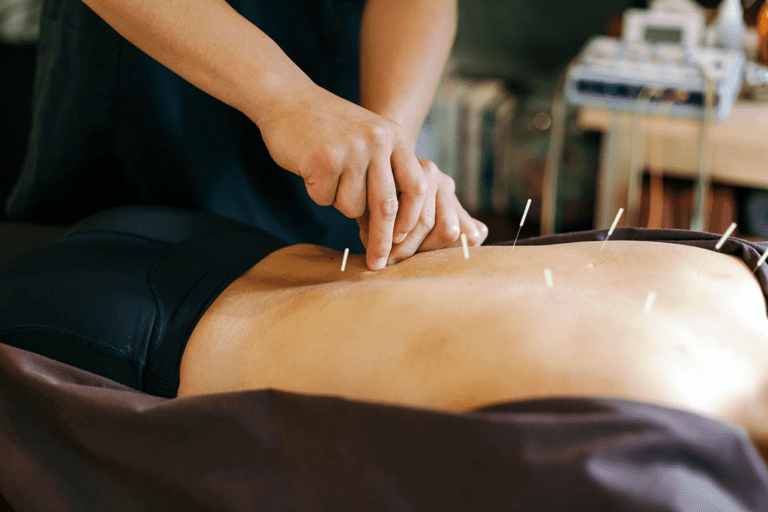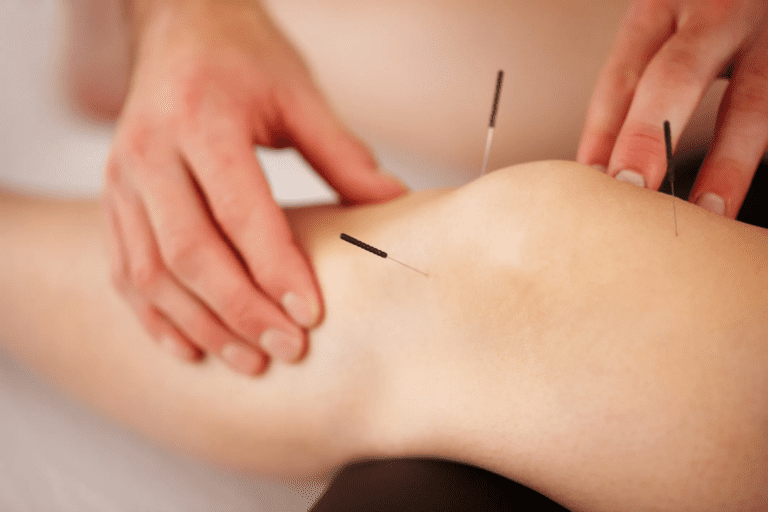
Acupuncture, a fundamental part of traditional Chinese medicine, has been around for thousands of years and can be traced back to ancient China. The technique involves inserting very thin needles through the skin of a person at certain points on the body in order to influence energy flow and restore health in different ways.
Acupuncture, over the centuries, has not only been embraced in the Orient but has also gained popularity as an alternative or complementary treatment option in Western countries. This blog post will provide insight into interesting aspects of acupuncture, such as its effectiveness and mechanisms.
What conditions can acupuncture effectively treat?
Acupuncture effectively treats chronic pain, migraines, anxiety, depression, and insomnia.
When needles are inserted into certain positions, acupuncture induces the body’s innate healing responses. It helps stabilize energy in the body and improves blood circulation. This treatment also tackles problems related to stress, digestion, and menstruation.
Acupuncture is both physically and emotionally good for a person, leading to a better lifestyle and alleviation of dependence on drugs used for the management of chronic diseases.
How does acupuncture influence the body's energy flow?
Acupuncture influences energy flow by inserting needles into specific meridian points, restoring balance and harmony.
This ancient method affects qi (vital energy), which flows through meridians or channels within the body. Unblocking these channels encourages energy circulation which can lead to pain or illness when it becomes blocked.
The approach facilitates self-healing processes as well as optimal functioning of the body through homeostasis. In holistic terms it simply rebalances our systems so that they are not out of balance hence fostering vitality promoting overall well-being.

Why is acupuncture considered a holistic therapy?
Acupuncture is considered holistic because it addresses physical, emotional, and mental health.
Acupuncture seeks to understand and treat underlying causes of illnesses in people’s health conditions, unlike many conventional treatments that aim to address symptoms. Doing so allows the organism to normalize itself naturally.
Targeting specific points of stimulation to improve the energy flow while immunity is boosted and stress levels are reduced using this technique known as acupuncture therapy. Its main focus lies in achieving long-term wellness with no distinction made between mind-body connection, thus showing their interconnectedness and mutual dependence.
This comprehensive approach guarantees various types of relief and recovery across all aspects related to patient health from a global perspective.
What are the scientific theories behind acupuncture's effectiveness?
Scientific theories suggest acupuncture modulates pain by releasing endorphins, influences neurotransmitter activity, and affects neuroplasticity.
Its insertion of needles into some points is what stimulates them, leading to the arousal of the nervous system. As a result, neurotransmitters like serotonin and dopamine are released, thus promoting mood enhancement and pain relief, respectively.
Moreover, acupuncture influences the body’s inflammatory response, which promotes tissue healing. This explanation also suggests that acupuncture has broad therapeutic effects and hence can be used to treat many conditions while maintaining the overall physiological balance and function.

How does acupuncture help in managing stress and anxiety?
Acupuncture helps manage stress and anxiety by calming the nervous system and balancing stress hormones.
Treatment focuses on specific acupuncture points that help bring down cortisol levels as well as other stress-related hormones in the body associated with stress response management. This leads to a feeling of relaxation and calmness, hence reducing symptoms of anxiety. It also stimulates the production of endorphins and serotonin, which improve mood and make people feel good about themselves. It treats the root causes of stress and anxiety and hence serves as an effective remedy for emotional health.
Can acupuncture improve sleep quality?
Yes, acupuncture improves sleep quality by regulating the body’s circadian rhythms and promoting relaxation.
Thus, by targeting certain acupuncture points, this method helps to regulate the autonomic nervous system by decreasing hyperarousal brought about by sleep disturbances. The calming effect reduces stress-related insomnia complaints through anxiety reduction by acupuncture therapy. In addition, it better prepares our body for deep restorative sleep phases, which in turn leads to improved energy level, mood changes along with general fitness. Sleep disorders have natural answers according to this way of treatment.
How does acupuncture support the immune system?
Acupuncture supports the immune system by enhancing circulation, stimulating immune cell production, and reducing inflammation.
It helps to boost the body’s natural defense mechanisms by activating certain points that cause the production and activity of white blood cells to increase. The enhanced circulation caused by acupuncture ensures that nutrients and oxygen reach crucial organs and tissues, thereby supporting immune function. It also moderates inflammatory responses, thus preventing chronic inflammation, which can lead to disease. All these effects result in a stronger immune system, which is more resilient in fighting diseases.
What role does acupuncture play in pain management?
Acupuncture plays a significant role in pain management by blocking pain signals and reducing inflammation.
The endorphins and other neurochemicals released into one’s body when this therapy activates the nervous system act as natural painkillers. By targeting particular points acupuncture eliminates muscle tension, and increases blood flow to damaged tissues hence leading to tissue repair and healing.
It successfully handles problems associated with arthritis, backache, and fibromyalgia without any side effects from drugs. Therefore, it is possible for acupuncture to deal with both types of pain in order for them not to be categorized as either acute or chronic pain conditions.
Wrapping up,
This article has discussed several ways through which acupuncture plays a significant role in holistic healthcare practices across diverse benefits associated with it. Different health problems may have personalized solutions from acupuncture centers. Therefore if you want alternative therapy that matches your own requirements, you could try acupuncture. Maybe you should consider adopting this ancient practice for greater well-being and better health.
